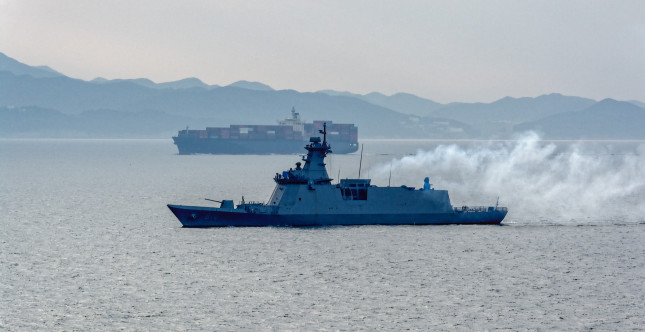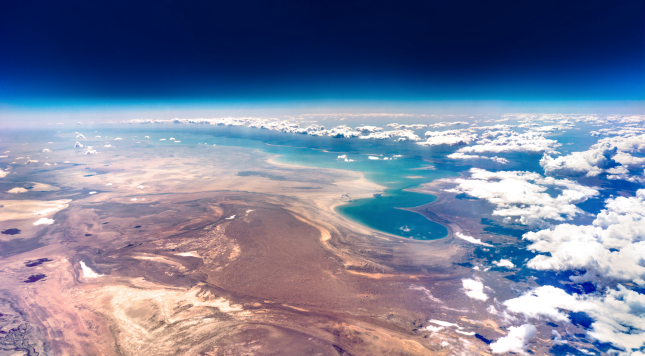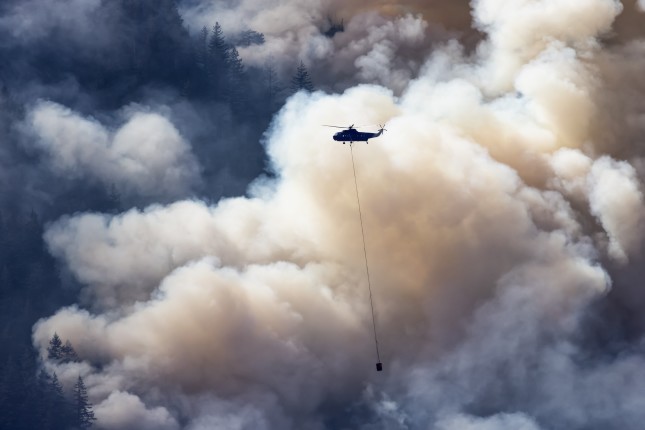-
“You Will Find Your People Here” with Dr. Caroline Wanjiku Kihato and Clare Loveday
› On today’s episode of New Security Broadcast, ECSP Director Lauren Risi and Distinguished Fellow Dr. Blair Ruble talk with Clare Loveday and Dr. Caroline Wanjiku Kihato about their collaborative installation, “You Will Find Your People Here,” currently on view at La Biennale di Venezia. Loveday is a Johannesburg-based composer, and Kihato is an urban sociologist who specializes in gender, migration, and governance; they worked in concert with pianist, Mareli Stolp, and Ghanian artist, Awo Tsegah, to bring the installation to life at the Biennale.
On today’s episode of New Security Broadcast, ECSP Director Lauren Risi and Distinguished Fellow Dr. Blair Ruble talk with Clare Loveday and Dr. Caroline Wanjiku Kihato about their collaborative installation, “You Will Find Your People Here,” currently on view at La Biennale di Venezia. Loveday is a Johannesburg-based composer, and Kihato is an urban sociologist who specializes in gender, migration, and governance; they worked in concert with pianist, Mareli Stolp, and Ghanian artist, Awo Tsegah, to bring the installation to life at the Biennale. -
ECSP Weekly Watch | August 21 – 25
›
A window into what we are reading at the Wilson Center’s Environmental Change and Security Program
Deforestation Dynamics in Colombia: The Role of Armed Groups
A 29% drop in deforestation in Colombia in 2022 was labeled as a victory for President Gustavo Petro. Yet there is another reason behind the decrease. Armed groups, such as the Estado Mayor Central (EMC), have imposed logging bans in areas under their control, and levy fines amounting to 251 dollars per hectare.
-
El Niño and Militarized Fisheries Disputes in the East and South China Seas
›
Earlier this summer, the Armed Forces of the Philippines spotted dozens of Chinese fishing vessels in—or very near to—the Philippines’ exclusive economic zone. This influx occurred just weeks after the US National Oceanic and Atmospheric Administration announced, “El Niño is here.”
-
Q&A: Dr. Jeff Colgan on the Energy Security Impacts of Russia’s War in Ukraine
›
Dr. Jeff Colgan is Director of the Climate Solutions Lab at the Watson Institute for Public and International Affairs at Brown University, and a keen observer of the interplay between energy and security. His new white paper, “Letting Europe’s Energy Crisis Go to Waste: The Ukraine War’s Massive Fossil Fuel Costs Fail to Accelerate Renewables,” co-authored by Alexander S. Gard-Murray and Miriam Hinthorn, offers a new window into how an event with the broad potential to reshape energy policy to more sustainable ends has failed to meet the moment. Colgan spoke to us about the institute’s new research and the lessons learned about conflict’s influence on the energy transition more than a year into the Ukraine conflict.
-
ECSP Weekly Watch | August 14 – 18
›
A window into what we are reading at the Wilson Center’s Environmental Change and Security Program
Thirst for Relief: Prolonged Drought Intensifies Afghanistan’s Humanitarian Crisis
Afghanistan is the world’s sixth most affected country by climate-related threats—and its present acute challenge is water scarcity, intensified by climate change. The country is heavily reliant on agriculture, which makes up a third of its GDP.
-
Charting Complex Currents: The Qush Tepa Canal and Central Asia’s Water
›
The riparian states of the Aral Sea Basin are experiencing growing water demands, land, and environmental degradation, aging and inefficient infrastructure, and the rapid melting of glaciers. These increasing challenges are compounded by the lack of an effective transboundary water governance system.
-
Climate Change and National Security Strategies: Assessing a Growing Trend
›
It is uncomfortably easy to find connections between environmental change and security around the globe. 2023 began with heat records in Europe, a deadly cyclone in New Zealand, and military deployments in response to forest fires ravaging Canada. An untimely early heatwave scorched Spain and endangered its agricultural production. Cyclone Mocha destroyed the livelihoods of thousands in northwestern Myanmar, and Typhoon Mawar caused “significant damage” to a terminal building on Guam’s Andersen Air Force Base.
-
ECSP Weekly Watch | July 24 – 28
›
A window into what we are reading at the Wilson Center’s Environmental Change and Security Program
Fixing the World’s Broken Food Systems
The United Nations summit on the state of the world’s food systems took place in Rome, Italy, this week, building on the work of a previous convening in 2021. The meeting focused on the environmental impact of agriculture and making food production more sustainable.
Showing posts from category security.


 On today’s episode of New Security Broadcast, ECSP Director Lauren Risi and Distinguished Fellow Dr. Blair Ruble talk with Clare Loveday and Dr. Caroline Wanjiku Kihato about their collaborative installation, “
On today’s episode of New Security Broadcast, ECSP Director Lauren Risi and Distinguished Fellow Dr. Blair Ruble talk with Clare Loveday and Dr. Caroline Wanjiku Kihato about their collaborative installation, “





